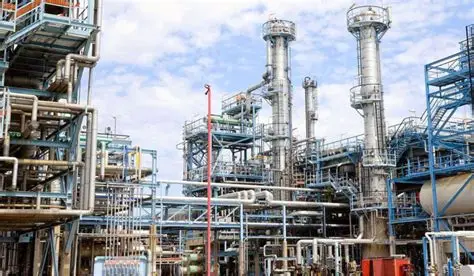ABUJA: The Nigerian National Petroleum Company Limited (NNPCL) has announced a comprehensive technical and commercial review of its three major refineries in Port Harcourt, Warri, and Kaduna as part of efforts to determine whether to overhaul or repurpose them for greater operational efficiency and profitability.
The company said the ongoing assessment forms part of its broader plan to reposition Nigeria’s refining assets into sustainable, revenue-generating entities capable of meeting domestic fuel demand while aligning with international best practices.
Disclosing this in an official update shared via his verified X handle on Wednesday, the Group Chief Executive Officer of NNPCL, Mr. Bayo Ojulari, described the review as a crucial step in redefining the nation’s refining future.
We are filled with determination and optimism to ensure our refineries operate effectively. The prosperity of our nation will always take precedence over individual interests,” Ojulari said.
He explained that the company is currently in the Technical and Commercial Review phase, aimed at assessing the physical and economic conditions of all three refineries to determine whether to high-grade or repurpose them for sustainable performance.
In refinery terms, high-grading involves transforming old, underperforming plants into modern and globally competitive facilities not just repairing faults but upgrading systems to deliver improved output and higher returns.
We are reviewing all three refineries comprehensively to determine the best path forward whether that involves full upgrades or conversion into more efficient models, the NNPCL boss added.
According to him, the exercise marks the start of a new phase in the national refinery rehabilitation programme, which aims to make NNPCL a commercially driven and transparent energy company capable of meeting Nigeria’s fuel needs locally.
Ojulari disclosed that the review, which involves both local and international experts, will guide key decisions on technology, operating models, and production capacity enhancements.
The NNPCL chief noted that the next stage of the project will focus on securing Technical Equity Partners with a proven record of running world-class refineries.
These partnerships, he said, would combine financing, technology, and operational expertise to implement the high-grade repairs and upgrades required for full productivity restoration.
We are in talks with potential partners, guided by strict technical and commercial benchmarks to ensure value delivery to Nigerians,” he stated, adding that all necessary agreements would soon be concluded to pave the way for physical mobilisation.
The refinery rehabilitation project remains central to Nigeria’s National Energy Strategy, which prioritises energy security, asset optimisation, and compliance with the Petroleum Industry Act (PIA).
NNPCL said the review will also ensure that it fulfils its role as the supplier of last resort for petroleum products while improving efficiency and profitability across its refining operations.
Nigeria’s refineries with a combined installed capacity of 445,000 barrels per day have remained largely idle for over a decade, despite several turnaround maintenance efforts that gulped billions of dollars.
In 2021, the Federal Government launched a $1.5 billion rehabilitation of the Port Harcourt refinery, awarded to Italy’s Tecnimont S.p.A, but the project has yet to achieve sustained production.
Ojulari, who assumed office earlier this year, had initially hinted at possible divestment from the refineries but later reconsidered, opting instead for a partnership-based approach driven by efficiency and accountability.
He emphasised that NNPCL’s renewed focus on performance-driven management and strategic collaboration would position the company to deliver reliable domestic refining and reduce the nation’s dependence on fuel imports.



